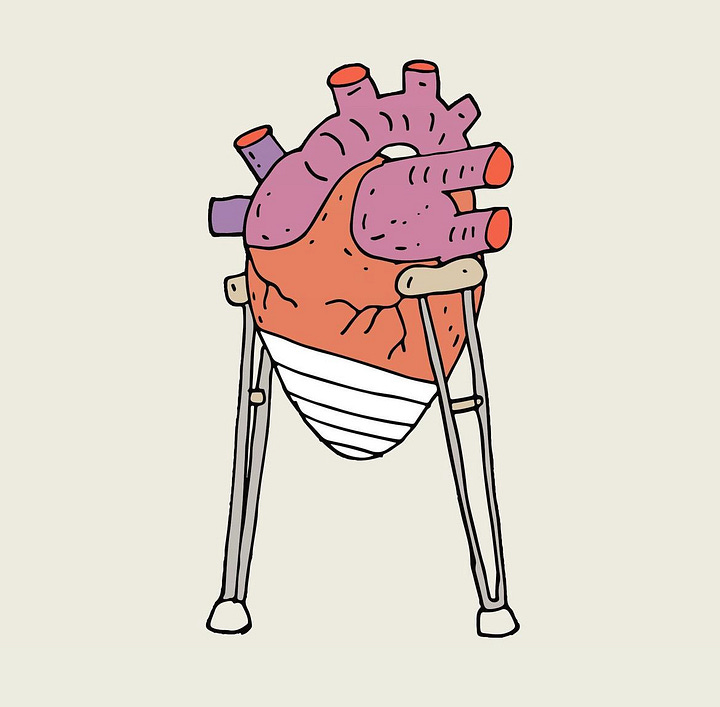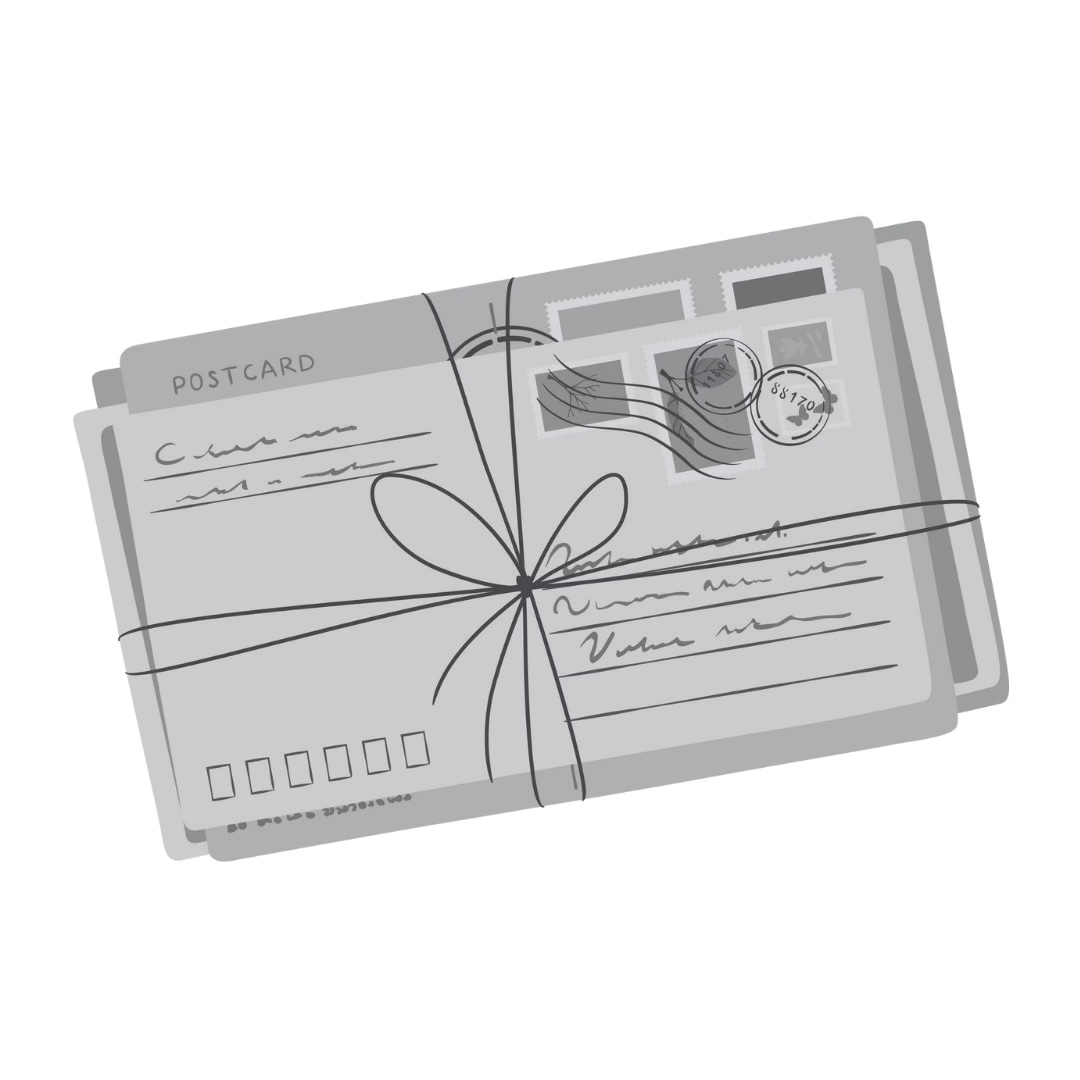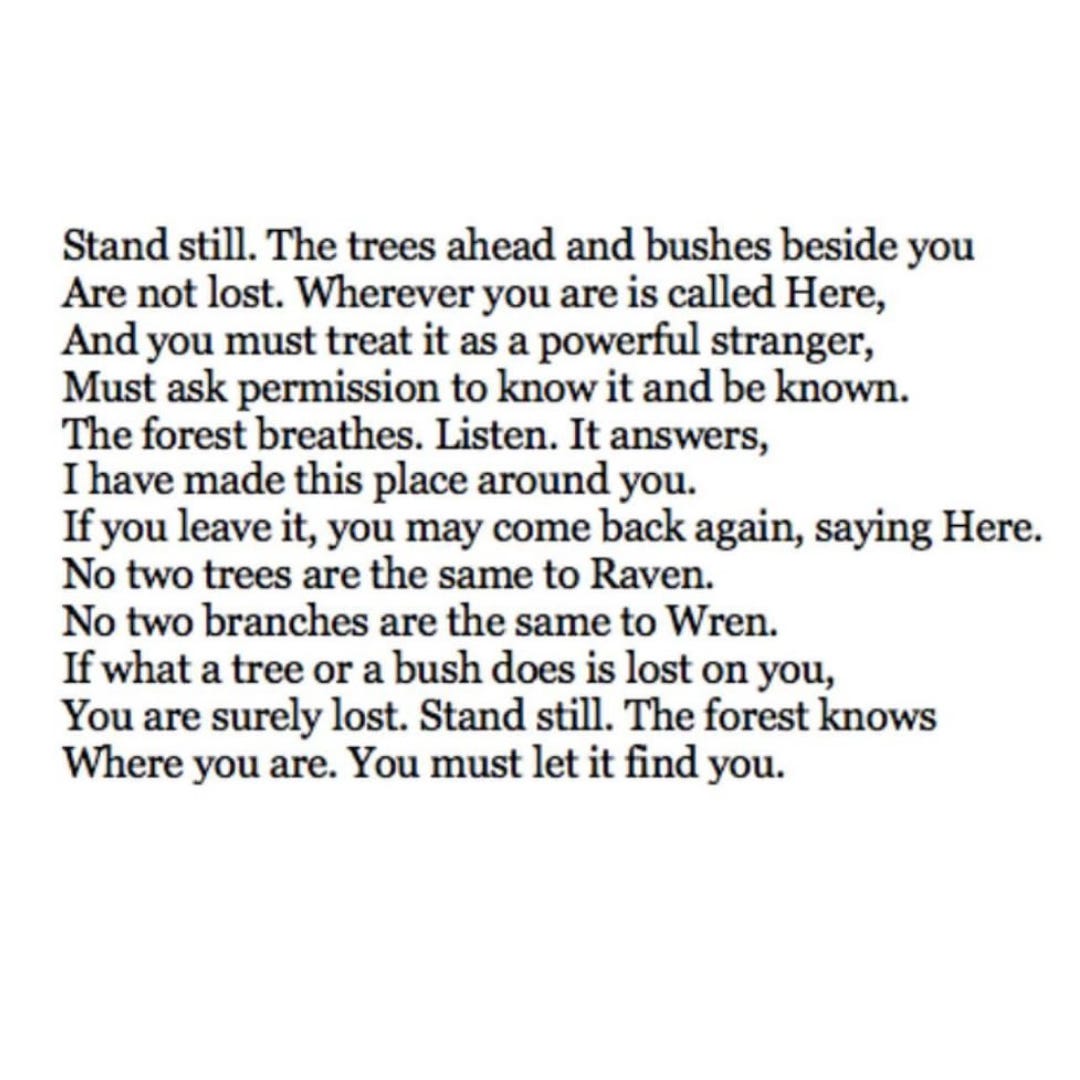Welcome back, my dear.
Below you will find three exercises to help you write. Spread them out over several days. Skip the parts that don’t inspire you. Ask questions in the comments. Don’t overthink anything. You’re just scrabbling around with language. See what comes.
There are Lovely Words for you at the end.
Imagine a Museum
and you, the Curator at the Museum of Your Helene Experience. Let’s put the museum together.
Make a(lot of) list(s). What would be part of the displays?
Think about the stuff you gathered before the storm, the objects you touched repeatedly in the days afterwards. Think about what you had to throw away, what piled up around your home, the debris that is still there, etc. Write it all down.
Which photographs would be on the walls? Think about the ones you actually took. (Does it feel okay to go back through them right now? It’s okay if that answer is no.) Think about the photos you wished you had taken, the ones you saw on social media or the news. Think about what you continue to see as you move around in your life now. Write these down too.
What would be the videos that are on continuous loops to help guests be immersed in your hurricane moments? These can be actual videos you took or ones you simply imagine. Write them in your lists.
What’s the soundtrack playing in the elevators as guests move through your experience? Add to the list.
Add context.
How would you group the items in your list(s) above? What titles would you give each room? Be as sincere and/or snarky as you need to be.
Where it feels helpful to do so, write out the short (or heck, make it really long) explanations that would appear on the white placards next to your museum pieces and installations. How do you help someone else understand what that particular thing/moment/sound/visual meant to you?
If there were an audio guide to a specific room you’ve imagined in your Museum, how does it lead a guest through? What does it tell them?
What’s in the glossy Welcome Brochure that’s handed to the folks who have come to understand what you went through?
It could be that you’re all done with this exercise. That would make sense, given what it asks you to sift through. BUT if there’s space within you to do more, it could be this:
If there’s a particular object that feels more significant than the others, stay with it and write about only it. Perhaps it will be a totem object of this experience for you.
or
Write a blessing (as spiritual or secular as you are) to be spoken over the spaces you have curated. Write the speech to be given at the ribbon-cutting. Write a eulogy for what was lost. Be kind and generous to yourself as you write.
Write a letter or two
Do you know that very meme-able quote from Mr. Rogers, the one that pops up after tragedies? The context: he’s explaining that sometimes he would see the news as a child and feel frightened, but his mother would give him this reassurance:
I hope that when you looked around after Helene there were people helping. I suspect that you did because of the kinds of communities we have and the sorts of people we are in these mountains. People who showed up for you or for a neighbor in ways predictable and surprising. People who gave you or let you borrow the things you needed. People who provided a service you couldn’t at the time. People who saved your life or some aspect of it. People who have stuck around and kept showing up. The helpers.
Write a letter of gratitude. Write it as a text or an email or a long-hand, old-school card or letter. Write one or write several.
You don’t have to send the letter(s), but you could. Write them even if you never intend to send them or wouldn’t know how to send them. Just write them. Say thank you. Tell them what their help meant to you.
Draw out another key moment
Let’s go to before the storm this time. Think about the day(s) before and what you stocked up on or pulled in from outside, the bathtub you did/not fill with water, the nonperishables you did/not gather, the car you did/not fill with gas. Were you ready?
What form should this one take? Prose (polished or messy) makes sense. A series of cartoon panels. A diagram of your pantry or cupboards, a rough sketch of the go-bag you packed and kept near the door. A list, two lists, a list that becomes poetry.
Tell about what you did to prepare for Hurricane Helene. Write about how you got that very wrong. Write about what you did exactly right.
Lovely Words
“Last night, as I was sleeping”
by Antonio Machado, translated by Robert Bly
Last night, as I was sleeping
I dreamt—marvelous error!—
that I had a beehive
here inside my heart.
And the golden bees
were making white combs
and sweet honey
from my old failures.
“The marvel of a basket is in its transformation, its journey from wholeness as a living plant to fragmented strands and back to wholeness again as a basket. A basket knows the dual powers of destruction and creation that shape the world. Strands once separated are rewoven into a new whole. The journey of a basket is also the journey of a people.”
-Robin Wall Kimmerer, Braiding Sweetgrass: Indigenous Wisdom, Scientific Knowledge and the Teachings of Plants
Lost
by David Wagoner
(Read more from the poet here.)
Finally, two images from the artist Scott Erickson’s Instagram page several years ago. His IG handle is @scotthepainter He also has a Substack of the same name that offers beautiful and honest visual meditations on living.












